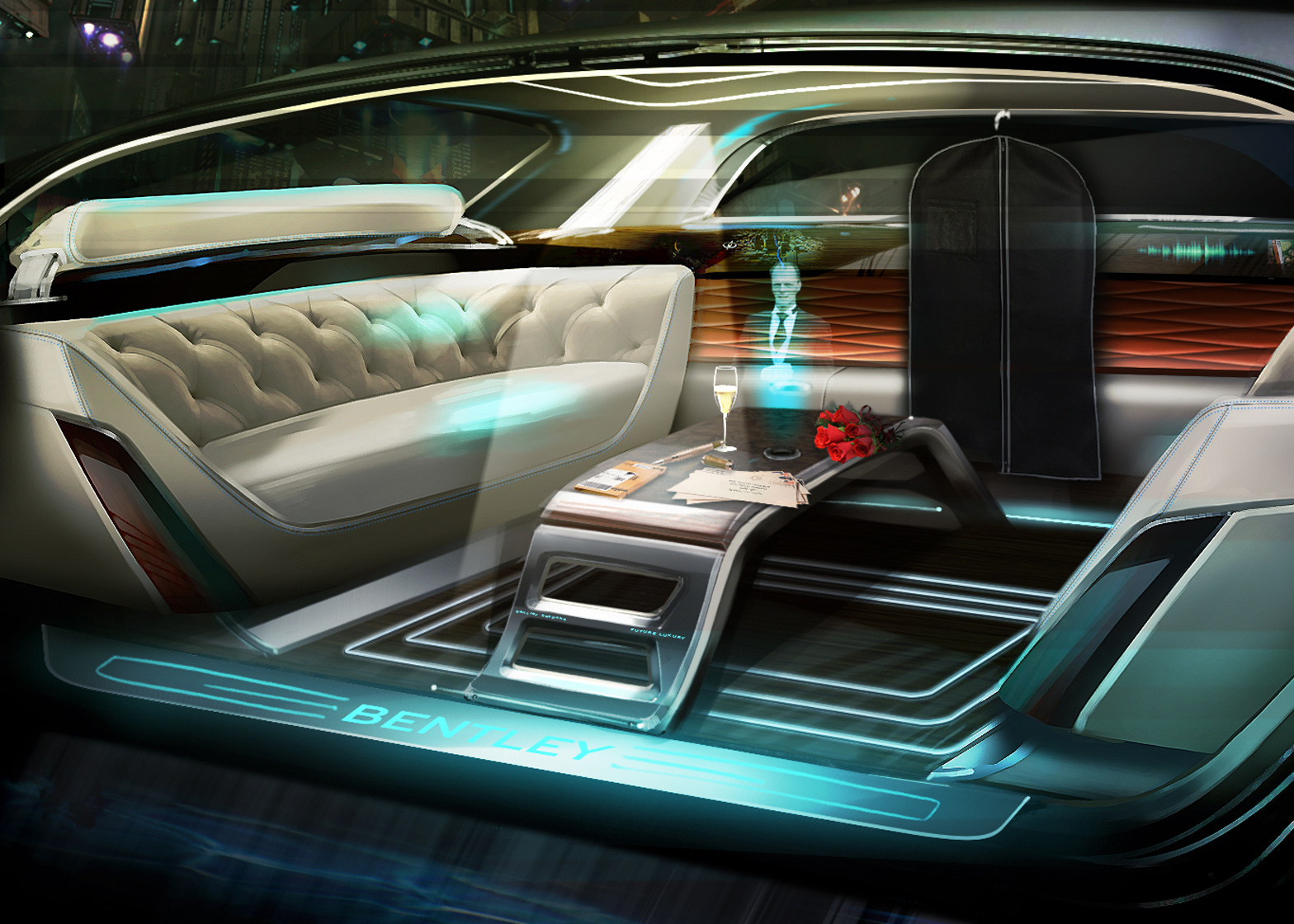The luxury autonomous vehicles of the future might offer customers a privileged "fast lane" through crowded city streets, according to Bentley's head of design Stefan Sielaff, who unveiled a preview of the British manufacturer's autonomous concept car in London this week.
"Large sections of the human population will be living in megacities in the next 10 to 20 years, which will lead to congestion" Sielaff told Dezeen. "This will only be overcome by autonomous or part-autonomous cars."
"For us of course the question is how a luxury experience is going to happen in such an environment," he continued. "Maybe the Bentley customer of the future is sitting in his autonomous Bentley but he paid for a fast lane on top."
All vehicles on the road would be driverless in such a scenario, with each car communicating to form an intelligent network.
"You could perhaps be in a Bentley club where you pay for fast-lane access," explained Sielaff. "Therefore other cars are moving out of the way and the Bentley is passing by. This could be a part of the luxury package."
Sielaff was speaking to Dezeen in London on Tuesday after presenting the British car manufacturer's future design plans to a small audience of journalists.
Bentley showed a preview of its concept for a futuristic autonomous car, with a single image comprising two large sofas, a holographic virtual butler and super-thin screens positioned below the side windows.
Sielaff joked that Bentley had in fact invented autonomous vehicles due to the fact that the brand's customers had "had chauffeurs for nearly 100 years."
Several traditional manufacturers are considering how cars might look and work in the future based on the rapid development of driverless technologies.
Google's self-driving car system has been officially recognised as a driver in the US, which could form the legal basis for establishing liability in the event of accidents involving autonomous cars.
Once legal liability is established, proponents of driverless technologies believe autonomous cars will become the norm. Tesla's Elon Musk suggested that the act of driving could be outlawed in the future.
Traditional manufacturers are also shifting away from petrol-powered vehicles, producing ever more hybrid- and fully electric-powered models instead.
Tech-giant Apple is rumoured to be developing an all-electric car too, presenting manufacturers with new and potentially strong competition for sales.
"We should not underestimate what [Apple] are doing because they are trying to find the answers to the questions we are exploring, such as what will happen in megacities and how these cars will be connected to each other," said Sielaff. "On the other hand I don't think we – as a traditional car producer – are as un-flexible as a lot of people think".
"We are able to think about the future and able to do things that Apple are not able to do."
Architecture firm Foster + Partners and auto brand Nissan recently combined technologies including wireless charging, autonomous driving and battery storage to present a proposal for the future of vehicles and cities at this year's Geneva Motor Show.
BMW has also unveiled a shape-shifting concept car with artificial intelligence that can predict a driver's every move.

